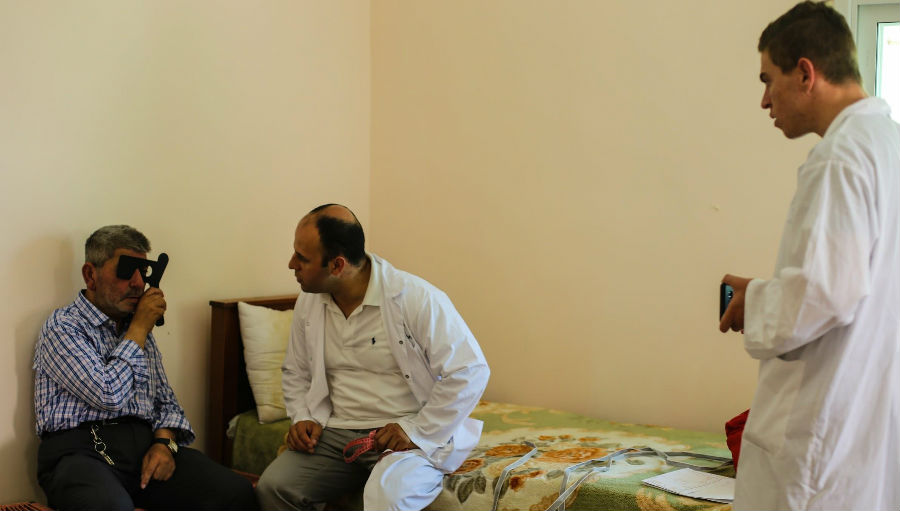Join a powerful, unprecedented alliance for better eye health for all.
Join IAPB-
Choose an alternate language here

A Rapid Assessment of Avoidable Blindness (RAAB) is a population-based survey of adults aged 50 years and over, using rapid examination techniques. In 2018, we launched the occupied Palestinian territories’ (oPt) second-ever RAAB in partnership with the London School of Hygiene and Tropical Medicine (LSHTM), which concluded in May 2019.
This report had a number of helpful findings, especially compared with a similar 2008 study conducted by St John of Jerusalem Eye Hospital Group (SJEHG). In the 2018 study, we screened 3,848 patients aged 50 years and above in their own home. It was found that untreated cataracts (38%) and diabetic retinopathy (24%) were the main causes of avoidable blindness in the oPt in 2018.
However, in 2008 cataract caused 55% of avoidable blindness- suggesting that cataract as a cause of blindness dropped because the number of unoperated cataract cases had decreased. In 2008, Diabetic retinopathy caused 8% of blindness. Diabetic retinopathy as a cause of blindness increased most probably because the prevalence of diabetes has increased and the diabetes and DR services were not improved to fall in line with these increased rates. This demonstrates that it is a growing issue for ophthalmic health in the oPt. These findings will enable us to develop effective, data-led strategies for tackling avoidable blindness.
Dr Nahed Mikki, who has project managed the most recent RAAB, explains the importance of these results:
“The results of this study prove what we have suspected for some time – that rates of diabetic retinopathy are growing alongside the increasing rates of diabetes across the oPt. It is clear that this condition is a growing issue for eye health in Palestinians. Luckily, on the back of the 2008 study we have been developing a robust diabetic retinopathy research, training and screening service across the oPt, so we are already off to a strong start in tackling the condition. What is necessary now is further investment across all levels to ensure this epidemic with the best possible resources we can gather.”
SJEHG thanks the Fred Hollows Foundation, CBM and German Ministry of Foreign Affairs for enabling this study to happen, the LSHTM for their coordination and training and the Palestinian Central Bureau of Statistics for their technical help in sample calculation and location.